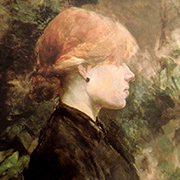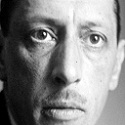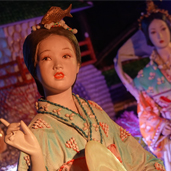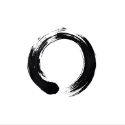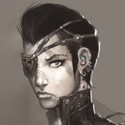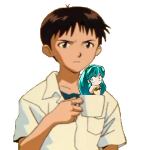|
I feel a little awkward resurrecting the thread like this, but I have a question. I know some of you read Japanese literature in the original Japanese. I was wondering about Yusuke Kishi's Shin Sekai Yori/From the New World. My brother is pretty interested in reading it, but he really wants to find a text sample so he knows what the style/difficulty is. Amazon.jp has utterly failed me on this, and I'm not having much luck with a google search. Can anyone post a sample or give me an idea of where else to look?
|
|
|
|

|
| # ? May 7, 2024 21:59 |
|
Caustic Chimera posted:I feel a little awkward resurrecting the thread like this, but I have a question.
|
|
|
|
mystes posted:Googled and it looks like if you go here you can click on the ブラウザー立ち読み link for a sample. Thank you, this helped a lot. My current favorite Japanese author is Yoko Ogawa. When I read The Housekeeper and the Professor, it sort of emotionally affected me. I know this will sound stupid, but it made me realize that math could in a way, be beautiful. I've also read Hotel Iris which I didn't like as much, but I did find fascinating. I need to pick up more of her books soon. I'm hoping to get more Japanese literature read this and next month. I picked up Autofiction for a flight I have (the premise interested me, and this seemed like a really appropriate time to read it. I think once school's done, I'll try I am a Cat, I've had it on my shelf for like, a year, but I've never had a good time to read it.
|
|
|
|
This thread keeps on getting bumped it seems. I just finished book 1 of 1Q84, and I'm trying to find a reason to keep reading. I'm a huge fan of Murukami's other books, but for some reason I just can't get through this one. In part, I've been blaming the translation, because the story seems very interesting, but the way people talk in this book is just so . . . dry? And the constant need to clarify what each other is saying over and over again just grinds everything to a halt. I don't remember if this was an issue in his other books, but it's very apparent in this story. On the plus side, it did get me into Chekov's "Sakhalin Island", so that's good.
|
|
|
|
|
Swim Good posted:I don't read Japanese, but recently I read Yukio Mishima's Confessions of a Mask which I found pretty amazing. He has a rare ability to hold my attention. I'm pretty sure if he wrote a book about paint drying, I'd love it. People in the know, what are the best english translations to get? I've seen a lot of his stuff by Vintage but I've heard their translations are bit off. I know a couple of Russian novels I've read by Vintage were less than stellar compared to Penguin. Read The Sailor Who Fell From Grace with the Sea, Forbidden Colors and Temple of the Golden Pavilion before jumping into the tetralogy, unless you prefer paint drying to, you know, plot. One of my favorite parts about Mishima's work, it he never seems to intend to be so menacing. He just, inescapably and quietly is. Think about Confessions of a Mask. When he's giving the reader information about his jacking off to murder. It just never seems like shock value or attention getting. So there is this constant undercurrent in his work of quiet dread and an impending threat that permeates all of his work. He philosophizes it into a nihilistic push for self actualization, even at the cost of evil. God Of Paradise fucked around with this message at 14:34 on Dec 6, 2013 |
|
|
|
Honestly I just finished The Sea of Fertility and the only Mishima I'd read before was one of his short story collections. It's a great story, and the circumstances around it give it this terrible ominous mood. Even though the third is strange, the strength of the first two should be enough to keep you interested, and the 4th is really something. I've got some more Mishima in the mail and I'm reading Kafka on the Shore while I wait. God I forgot how readable Murakami is.
|
|
|
|
Max posted:This thread keeps on getting bumped it seems. Yeah, 1Q84 was not a good direction for him. The whole thing feels slow and bloated, and the book painfully accentuates the worst of Murakami's writing style. It simply goes on for far, far too long for what it is. It doesn't help that if you're familiar with the rest of his works you could probably put the book down now and write the ending yourself. He's at his best when he sticks to shorter stuff. I did finish it, but unlike his other works I cannot fathom picking it up again.
|
|
|
|
God Of Paradise posted:Read The Sailor Who Fell From Grace with the Sea, Forbidden Colors and Temple of the Golden Pavilion before jumping into the tetralogy, unless you prefer paint drying to, you know, plot. Forbidden Colours is my stand-out favourite of his books. Just the way every page has this malicious undercurrent, and I'm honestly not sure how much of it Mishima intended. It's a very dark look into his personality, perhaps more so than Confessions. I wonder how much he identified with Yuichi, and also Isao from Runaway Horses, but then Shunsuke is probably far closer to him as a character than the others. Reivax fucked around with this message at 07:16 on Dec 20, 2013 |
|
|
|
I did it! I actually finished Brave Story. (I also read Autofiction last month, and quite enjoyed it.) I have a question to anyone else that has read this tome. Concerning Kaori Daimatsu: Her soul being in Vision, does anyone have any idea what that was about? The best idea I could come up with was that Mitsuru had tested out his magic on her a while before he ever used it on Kenji Ishioka, but I'm not sure if that even matches up time wise. My brother thought it might be that she fell into Vision by chance and died there. I'm almost wondering if I'm just missing something concerning that. Other than the many questions I have that are sort of swirling around in my head, I did quite enjoy it, even if it took an eternity to read. Definitely not touching I am a Cat for a while, I want something short!
|
|
|
|
Reivax posted:Forbidden Colours is my stand-out favourite of his books. Just the way every page has this malicious undercurrent, and I'm honestly not sure how much of it Mishima intended. It's a very dark look into his personality, perhaps more so than Confessions. I wonder how much he identified with Yuichi, and also Isao from Runaway Horses, but then Shunsuke is probably far closer to him as a character than the others. Mishima is pretty much always simultaneously sincere and ironic. He's always kind of playing a game with the reader because he truly believes the stuff he's writing, but he knows it's completely impossible and not something that can ever happen in the modern age. He's basically a Romantic who missed Romanticism and totally knows it.
|
|
|
|
Way back on Page 3, Zo was asking about Noh. I had the chance to see live torch lit Noh plays in Nara in 2012 (Sorry, I can't remember the play names. If I find them in my BIG BAG OF JAPAN STUFF I'll add it in). I strongly recommend seeing torch lit Noh if you get the chance. If you get the right play, you will also get to see a Kyogen, which is often entertaining even if you don't speak Japanese well (like me). Watching Noh in a theater is no where near as good as watching it the way we did as a class. Watching a demon play as the sun sets is actually somewhat disturbing, when the demon runs to the edge of the stage coming right at you and his eyes are lit up glowing red by the sun, but his mask is mostly hidden in shadow. It's really something else. Then they turn on the floodlights when the sun goes down because they need stage lighting to record the event...Noh costumes and masks really only show their magic under uneven, low light. They pass out pamphlets with the script on it at the event so people can follow along, but we had to rely on translations our professor gave us. Reading Noh plays and experiencing them are two very different beasts. I would recommend the text book Traditional Japanese Theater edited by Karen Brazell if you want to learn about Japanese theater, and read a few plays. I'm not really a literature person, but I enjoy Japanese plays immensely. I was very disappointed that we had to leave Japan a week before Bando Tamasaburo came to perform Kabuki in Osaka. While not a book, any fan of Mishima absolutely must see Mishima: A Life in Four Chapters. Most things by Lafcadio Hearn are pretty interesting, and a large collection of his books are available for free on iOS devices. Glimpses of Unfamiliar Japan is like reading the diary of the first otaku. It's all very romanticized, but a good read if you want to see what Japan was like in the late 1800's. Any book titled "Life of an Amorous 'X'" are usually pretty entertaining. Life of an Amorous Man started the long running "Dildo Boat" joke that persisted into any class with my lit. professor...who was the only professor of anything Japanese for 4 years at my college...Really though, the ending to that book is something else. Essays in Idleness written by Kenko and translated by Donald Keene can be an interesting read for anyone interested in the time period around 1300. In Praise of Shadows by Jun'Ichiro Tanizaki can be read as either sort of mocking or praising Japanese aesthetic. Very short, quick read. My professor prefers the former. Backroads to Far Towns by Basho. Filled with his haiku. I can't read Japanese, so I'm sure the English translations don't do them justice. The Oxford Book of Japanese Short Stories edited by Theodore W. Goosen. Short stories. Many of them. About 34 I think. Includes works by (In Japanese name order) Mori Ogai, Natsume Soseki, Shiga Naoya, Tanizaki Jun'Ichiro, and so on. It's a really excellent little collection and really shows how strong Japanese authors are at short stories. During the discussions of Tale of Genji you all were having there is something that wasn't really brought up. One of the more contemporary arguments is that Genji is less about Hikaru Genji, but more how he influenced the lives of people, especially of the women, around him. I was just wondering if any of you had heard of these arguments before. The first time I heard it was in my Japanese lit. class.
|
|
|
|
Max posted:This thread keeps on getting bumped it seems. I don't blame you. I got through about 2/3rds of 1Q84 before I just had to put it down. Am I in the minority when I think Murakami's best work are his short stories (besides the Windup Bird Chronicle)? I'm reading Akutagawa's The Beautiful and the Grotesque. It's a nice collection of some of his short stories, and has a lot of ones that weren't included in the Penguin Classic edition Rashomon. I have it as a goal this year to FINALLY read the Heike Monogatari.
|
|
|
|
 Osamu Dasai is my dude. I find it disheartening that Mishima has overshadowed him but its understandable. Mishima hung on for like six more years, was an actor/director plus had a bitching body. And his writings were top notch. Where Mishima wrote Confessions of a Mask, Dazai had No Longer Human. Both are largely autobiographical (you can make a strong argument that there was very little fiction in Confessions) however where Mishima has this underlining subtle sense of dread/menace that just builds Dazai is very straight forward. He is miserable and seething with self loathing and nothing can or will ever change those fact. And if you like semi autobiographical works then boy will you like the rest of his stuff because he just can not stop self inserting. Much of his early and late works are first person accounts. Schoolgirl is cool and fun because its just Dazai as a girl hating on his neighbors and feeling alienated from society. His middle period is often overlooked but it is definitely worth checking out as well. Largely retellings of Japanese tales, they tend to have an odd sense of humor to them and are a nice contrast to some of his darker works. I have Blue Bamboo: Tales of Fantasy and Romance and Otogizoshi: The Fairy Tale Book of Dazai Osamu both of which were translated by Ralph McCarthy and I think he did a good job and so I recommend them. Stravinsky fucked around with this message at 09:46 on Feb 8, 2014 |
|
|
|
I think the best way to compare both Mishima and Dasai is to look how the reacted to their feelings of alienation. Dasai internalized it and hated himself and felt constant guilt and constantly tortured himself in his writings. Mishima it outwards. He blamed the world and not himself and sought to torture others much like men lined up to die in one of his imaginary gladiator pits from Confessions.
|
|
|
|
Is there any such thing as happy, positive Japanese literature? Though I guess you could ask the same question about literature from anywhere.
|
|
|
|
Thinky Whale posted:Is there any such thing as happy, positive Japanese literature? Though I guess you could ask the same question about literature from anywhere. Banana Yoshimoto is pretty fun!
|
|
|
The Repo Man posted:
Yeah, I read a lot of this stuff while I was going through my "read everything that is free on Kindle" phase. It's an interesting read but it has that heavy stamp of orientalism on it . . . I've made it about halfway into Tale of Genjii but didn't manage to finish it due to distractions. What I did get through was very interesting, but more in a "wow, what an interesting culture this is depicting" sort of historical-social perspective, rather than something I was reading for the narrative. I have a feeling it's like Austen where you have to spend a lot of work understanding the contemporary culture of the writer before you really appreciate it fully. I've only made brief forays into more modern Japanese literature, mostly a little Murakami which I guess is everyone's gateway drug, and maybe he didn't translate well or I missed something, but I felt like I wasn't reading a coherent work, just an assortment of bizarre references slapped together to pamper the reader's intellect.
|
|
|
|
|
I've been alternating between Musashi and Taiko by Eiji Yoshikawa recently. Not quite as literary as some of the other works discussed here, but they've been pretty fun reads. Are there any other notable Japanese historical fiction writers? I don't know Japanese, though, so I wouldn't be able to handle the more obscure recommendations. Also I couldn't get through IQ84 either, I liked Murakami's other works but this felt painfully self-indulgent, even for him.
|
|
|
|
Thinky Whale posted:Is there any such thing as happy, positive Japanese literature? Though I guess you could ask the same question about literature from anywhere. I usually think that Junichiro Tanizaki is pretty much positive for a beginning of 20th century Japanese writer, with the whole erotic affirmation (that's how I like to call it) going on. Also, Soseki's Random Thoughts is quite positive, despite the suffering due to his illness. I just like how despite the terrible physical pain, he still sees warmth in his life. Anyway, my next Japanese read will be something by Kenzaburo Oe, but I have to first finish my backlog. 
|
|
|
|
Pfirti86 posted:Banana Yoshimoto is pretty fun! Oh yeah, Kitchen was surprisingly sweet, even though it was about dealing with loss and mourning. Knight Corgi posted:I usually think that Junichiro Tanizaki is pretty much positive for a beginning of 20th century Japanese writer, with the whole erotic affirmation (that's how I like to call it) going on. I'll have to put both of those on the list. I tried some of I Am A Cat and liked it all right, but got the feeling I was missing a lot by not being a Meiji Era Japanese person. Now that I think about it, I've been trying some Ryunosuke Akutagawa stories, and they're surprisingly fun. They're kind of fairy-tale-esque and the tone is sort of arch and playful, even when they're about, say, a guy trying to climb up a spider thread out of freaky Buddhist hells. Then again, I've been banging my head against reading them in the original and my Japanese isn't that good, so I could be misinterpreting the feel of it completely.
|
|
|
|
Hieronymous Alloy posted:
|
|
|
|
Hieronymous Alloy posted:I've made it about halfway into Tale of Genjii but didn't manage to finish it due to distractions. What I did get through was very interesting, but more in a "wow, what an interesting culture this is depicting" sort of historical-social perspective, rather than something I was reading for the narrative. I have a feeling it's like Austen where you have to spend a lot of work understanding the contemporary culture of the writer before you really appreciate it fully. Yeah, Genji is a lot of work. If you get the Penguin Classics Delux edition translated by Royall Tyler, there are a ton of great end notes and explanations of what's going on. Made it a lot easier to digest. I basically finished it because I hate putting down anything I'm reading.
|
|
|
|
Inadequately posted:I've been alternating between Musashi and Taiko by Eiji Yoshikawa recently. Not quite as literary as some of the other works discussed here, but they've been pretty fun reads. Are there any other notable Japanese historical fiction writers? I don't know Japanese, though, so I wouldn't be able to handle the more obscure recommendations. There are mountains and mountains of historical fiction in Japan, but not a lot of it gets translated. Presumably that's because publishers don't predict much of an audience for stories about premodern Japan, but maybe also because it's generally considered pop lit rather than 'real literature.' Miyabe Miyuki, for example, writes a bunch of historical fiction, but all that ever gets translated into English are her sci-fi/fantasy/horror stories. Still, it looks like there are a few things that have managed to get translated: The Flower Mat, by Yamamoto Shugoro Master Assassin, by Ikenami Shotaro The Bamboo Sword, by Fujisawa Shuhei The Curious Casebook of Inspector Hanshichi, by Okamoto Kido I haven't read any of those translations, so no guarantees on quality or anything. Actually, though, for anyone interested in historical fiction in Japanese, once nice thing about its position as pop lit is that there has been a steady stream of manga and TV drama and movie adaptations of the hit series since like at least the mid 70s. So if you pick up something by Hiraiwa Yumie, say, and it's taking too long to get through the book, then you can hunt down a manga adaptation of it and have nice pictures to help with understanding.
|
|
|
|
I've been working on a project lately that I imagine is of interest to you all. I've been translating a story by Akutagawa once a week. I think this is relevant enough to the topic at hand to be acceptable self-promotion. I have been trying to choose only stories that have not been translated and are widely available. So far I think only the very first story has appeared elsewhere, and that was in a journal from the 70s. I'm including a couple of stories I translated for my thesis as well, and those tend to be a lot more polished. For the most part the rest of the stories have been done in one sitting and there's the occasional rough patch. But I've been trying my best to capture Akutagawa's flow.
|
|
|
|
Rochallor posted:I've been working on a project lately that I imagine is of interest to you all. I've been translating a story by Akutagawa once a week. I think this is relevant enough to the topic at hand to be acceptable self-promotion. Xiang Yu vs. Liu Bang is a loving awesome epic story in Chinese history, and it's too bad there's not a well known fictionalized account like the Romance of the Three Kingdoms to immortalize it beyond China proper.
|
|
|
|
Looks like the English translation of Haruki Murakami's latest novel is due August 12th.
|
|
|
ulvir posted:Looks like the English translation of Haruki Murakami's latest novel is due August 12th. I hope there's more polish on this translation. That was something that really bogged 1Q84 down.
|
|
|
|
|
Max posted:I hope there's more polish on this translation. That was something that really bogged 1Q84 down. It should be. It is a third the length of 1Q84, and on that they split the translators (a different guy did the third volume) in order to get the book out quicker. I didn't find either translation particularly bad but it was jarring to have an abrupt switch something like 700 pages in.
|
|
|
Max posted:I hope there's more polish on this translation. That was something that really bogged 1Q84 down. That's just Murakami's writing. His books get more self-fellating the longer they go on. I'd take South of the Border or After Dark over his longer stuff any day. Oh yea and if you know nothing about Japan like me and you wanna read some scary poo poo read Underground. Arakan fucked around with this message at 08:45 on Mar 4, 2014 |
|
|
|
|
So I went to the flea market and I bought a box full of books, some of them were good some of them were bad and one of them was in japanese: Problem is, I don't speak japanese and I would love to know what I bought. Sorry if this isn't the right place to ask but I thought it was the closest. e. Sorry, posted from my phone. DoctorPresident fucked around with this message at 04:08 on Mar 12, 2014 |
|
|
|
timg that, dude. Quote your post and you'll see the tags you need to use to thumbnail it. I don't know Japanese authors but the power of amateur JSL tells me the book is 'Fuyu no Maboroshi' or 'Illusion of Winter', by Iijima Kouichi, presumably this guy.
|
|
|
|
I'm trying to get into Japanese lit after reading an Akutagawa short story collection, but really just starting. I've read some Abe, a bit of Murakami, etc. but I'm honestly not even sure where to start with other authors. It's just such a massive undertaking.Dr Scoofles posted:Thanks to this thread I purchased An Artist of the Floating World by Ishiguro, Asleep by Yoshimoto and I re-read Out by Kirino. As much as I adore Ishiguro, I don't know that I would consider him a Japanese writer, at least culturally. He was born and raised in Britain, and has said that his image of Japan was more based on stories than on fact. But he's still a great writer. His books are so layered. If you liked AAoFW, I would highly recommend The Remains Of The Day, arguably his strongest book. Though this is an old post so maybe too late anyway.
|
|
|
|
I just finished the Ise Monogatari. It was alright, if you're into the ancient stuff and want a quick read. I mostly picked it up because the copy I got was translated by Royall Tyler, who is by far my favorite translator! Honestly, ancient/medieval Chinese lit is just so much better than the stuff I've read out of Japan so far.
|
|
|
|
I finally read all of Murakami's 1Q84. It's very interesting, but also quite slippery. Murakami doesn't seem to be the sort of person who wants to give you answers as much as he wants to make you ask questions yourself. I certainly have some questions with this book. 1. Why 1984? The totalitarianism in the title and setting surely is meant to impart a general feeling, but it also seems like a guidepost. To what degree does the malicious indoctrination of beliefs shape the narrative? Of course there is Sakigake, and also the Christian Believers that Aomame was born into. But what about the Dowager, Fuka-Eri, Ushikawa, and even Aomame and Tengo? Aomame is a mentally-vulnerable woman who has murdered many people; the Dowager fosters her and convinces her that killing is proper and noble. Knowing Murakami's interest in Aum Shinrikyo, these seem like problems. Aomame claims to be facing the world reasonably, but she jumps to several conclusions about the way the world works, and when she becomes pregnant it's safe to say that "I was magically fertilized by Tengo" is a delusional belief. The Dowager and Fuka-Eri seem to be dignified, captivating individuals, but doesn't this necessarily make it all the easier to become their captives? And for Tengo, the first book ends with him sleeping with his girlfriend, perfectly content with letting her have complete control over him--it seems like an ominous situation that shows that his desires aren't so different, psychologically, from the Believers wanting their narrow world with a God who predetermines the world. However, the novel ends with Aomame's blind belief allowing her to escape from 1Q84. How can this be reconciled with the critical judgments that are passed upon people with "narrow world views" throughout the book? Another way to put this is--The novel 1984 ends with the protagonist submitting to indoctrination and belief. How does 1Q84's ending differ from this? In the final lines of the book, Tengo and Aomame look at the single, beautiful moon, until the sun "steals its brilliance" and it is diminished into a paper moon. What an ambivalent ending--I have no idea how to feel about it. 2. What is the deal with the Little People? I believe at one point, Aomame structures them as "neither good nor evil, but in opposition to God." But the question then is, what does Aomame consider God? She talks about an impersonal, presence-like God, but she also deifies Tengo. The Little People are a group that are indistinguishable from one another, which seems to be quite contrary to the figures of Aomame and Tengo. Both of them have striking appearances that the other would recognize despite years of time--one gets the impression that they are singular individuals as opposed to the indistinguishable crowd of the Little People. Tengo's father seems to have something in common with the Little People as well, interrupting people by beating on their doors; the Little People have a keeper of the beat as well, who interrupts the text with his "Ho, ho!" I believe Tengo's father's voice is described as hoarse, which is used to describe the voice of a Little Person. If you align Tengo's sad, overworked, unimaginative father with the Little People, then it's safe to align Sakigake and the Beleivers with them as well, in which case you can see a sort of contrast between the tired, close-minded, and hunched-over people that 1Q84 so often describes and characters like Aomame and Tengo, who seem special. At one point the narrator insists that Aomame is not narcissistic. But if this sort of framing is accurate, and the Little People represent the beaten and worn-down, then doesn't that create a narcissistic, black and white system in which you are either radiant and singular or washed-out and indistinguishable? This is, after all, the sort of anxiety that one would get from closely following Jung's train of thought with "individuation," and Jung is explicitly evoked in this novel. But even still, there doesn't seem to be a one-to-one correspondence, since the Little People, while dangerous and destructive, are still creative beings. 3. Who is the narrator? For the majority of the book, it seems to be the case that we're receiving a close third-person account, essentially hearing the subjective experiences of the given PoV character as they seep out from them. But the book makes sure that we know this is not the case, and that it's not actually a free indirect discourse. The Little People interrupt the text, and there is a segment where the narration actually breaks away from the PoV character and gives a detailed account of information that should have been unknowable to the PoV character. Likewise there is a chapter attributed to Ushikawa that takes place after he's already dead. In other words, the perspective is one where an outside observer is taking a close look at these characters and relaying that information to us. There's actually a filter or a censor in between us and the characters. 4. What's Ushikawa's deal? It seems vitally important that a third PoV would be included in the final book, and that it would be someone who is unrelated but similar to Aomame and Tengo. But what do we learn from Ushikawa? Like Tengo and Aomame, his childhood was poor and his family was emotionally cruel. He coops himself up in a house all day like Aomame does, was a fiercely intelligent child like Tengo, and like Tengo's father who haunts the world as a menacing collector, Ushikawa seems fine with leaving a legacy of pain after he dies, content with knowing that his daughters will pass on the genes that made him an outcast. He even is capable of seeing the two moons. Why is he so similar to these characters, and why is his end so grisly? He may not be a saint, but neither are Tengo or Aomame. 5. I can't believe it took me until the last 200 pages to realize "Maza and Dohta" was just "Mother and Daughter," oh my god. Komatsu calls them a fascinating system. The idea of the Maza and Dohta, their relationship to the two moons, and what it means for the characters is really obscure to me. It seems like this book has so many mysterious connections between events, and these events inform how we understand its themes, so in the end the book is just full of mysterious ideas that are very hard to piece together.
|
|
|
|
Can anyone recommend any Japanese horror? I don't think I've ever had a chance to read any, which seems strange given how much of an impact their film industry has on the genre. I prefer psychological stuff to gross out / thriller stuff, but honestly I'm just kind of curious what's out there.
|
|
|
|
Full Fathoms Five posted:Can anyone recommend any Japanese horror? I don't think I've ever had a chance to read any, which seems strange given how much of an impact their film industry has on the genre. I prefer psychological stuff to gross out / thriller stuff, but honestly I'm just kind of curious what's out there. Edogawa Rampo is probably the biggest influence in Japanese horror. Start with The Human Chair.
|
|
|
|
I finished Hard-boiled Wonderland and The End of the World a few days ago, and for some reason I just couldn't get into this book at all. It had an interesting concept presented pretty shoddily, and in my opinion this is probably the weakest book of his I've read yet. I'd even rank 1Q84 above it. Have I just matured past Murakami, or are everyone who claim this is his best novel just objectively wrong?
|
|
|
|
Maybe you just didn't like it.
|
|
|
|
Murakami's newest book, "Colorless Tsukuru Tazaki and His Years of Pilgrimage", is coming out tomorrow in the U.S. I've heard people say that it's a return to form for Murakami (comparing it to Sputnik Sweetheart and Norwegian Wood) in that he doesn't try to go for an overly grandiose plot about conspiracies and alternate dimensions like in 1Q84, which I thought was a bit of a slog. Needless to say, I'm pretty excited.
|
|
|
|

|
| # ? May 7, 2024 21:59 |
|
Mira posted:Murakami's newest book, "Colorless Tsukuru Tazaki and His Years of Pilgrimage", is coming out tomorrow in the U.S. Cool, thanks for the heads up. Really glad to hear he's going back to something simplier after how half-baked 1Q84 was.
|
|
|





